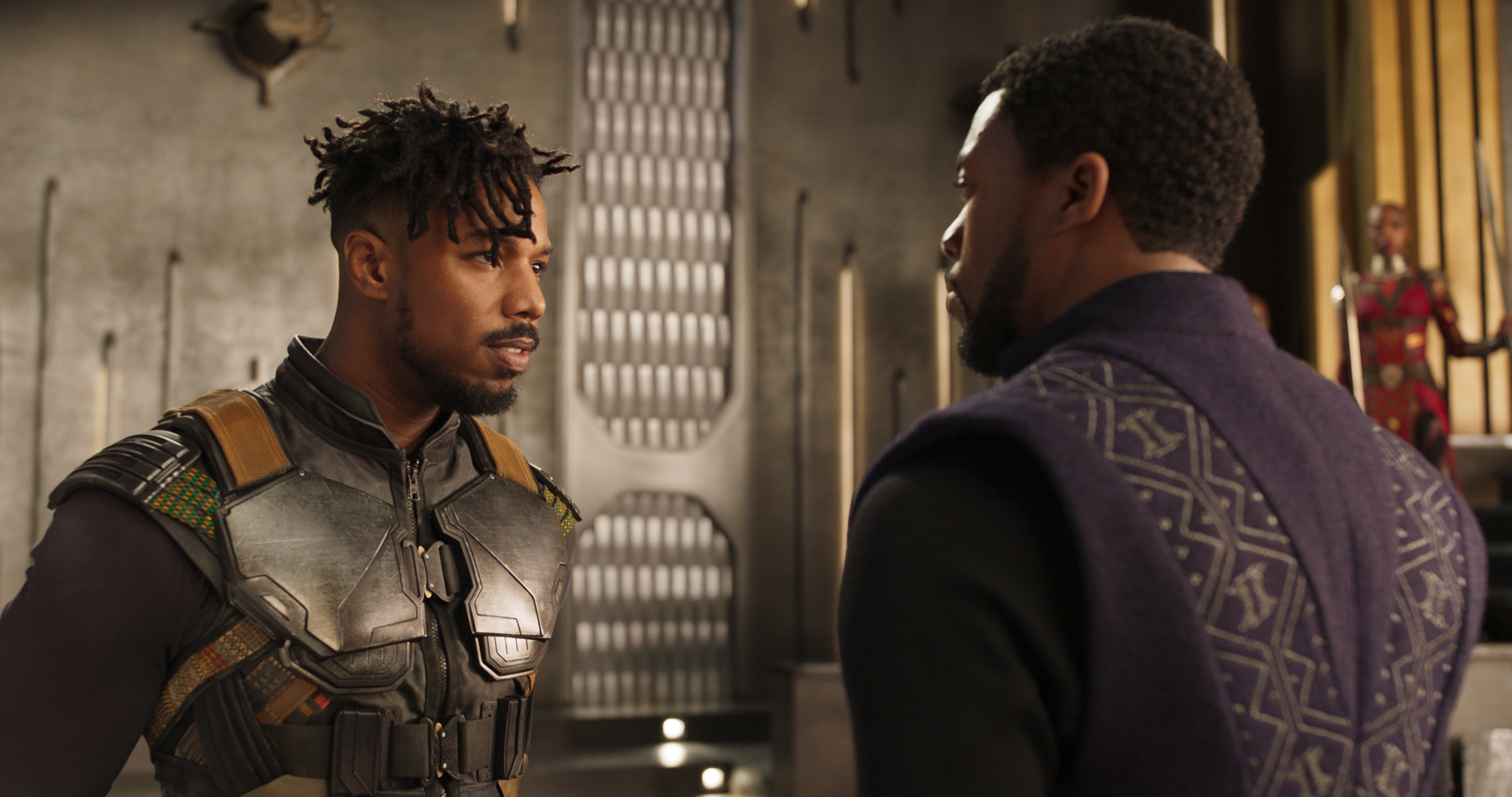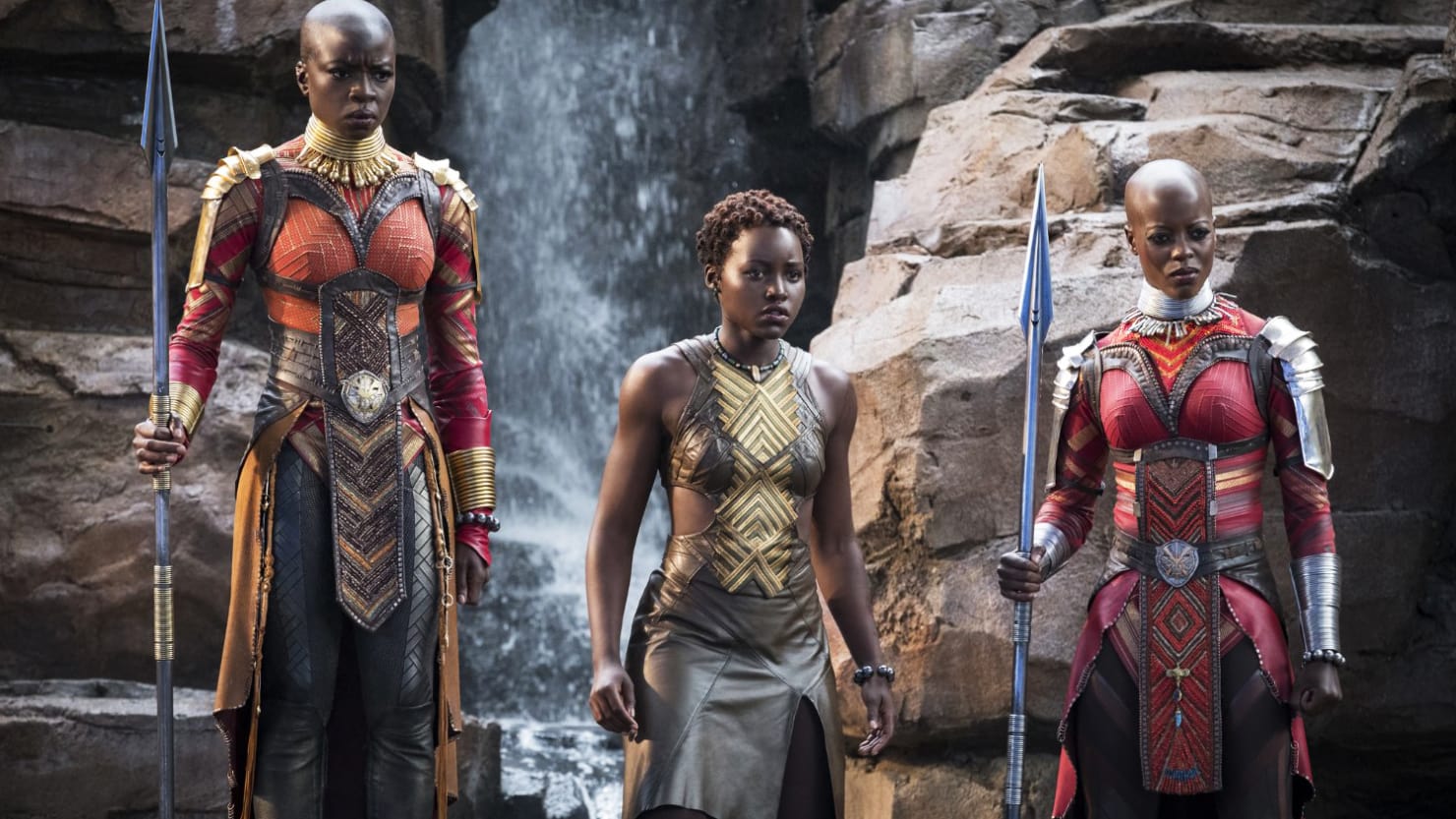Black Panther ushers in a whole new era of cinema, not just for Marvel or superhero films, but Hollywood as a whole. If the industry doesn’t sit up and start taking notes after this, then we have an even bigger problem than we thought.
This article contains spoilers for Black Panther.

Marvel’s Black Panther has taken the world by storm, and for good reason. In its first 4 days, it has collected over $425 million worldwide, including the fifth highest opening in US history at over $201 million. This is not only a great film, but it’s groundbreaking in terms of its representation of both African and African-American culture. Directed by Ryan Coogler and featuring an almost entirely black cast, this film deserves the scale it’s been given, and it’s about time, too.
Black Panther follows the story of T’Challa (Chadwick Boseman), as he takes his rightful place on the throne as king of the fictional African nation, Wakanda. As we remember from Captain America: Civil War, T’Challa’s father and previous king, T’Chaka, was killed in the explosion at the UN ceremony. This is relayed again throughout this film, as well as giving us more insight into a mysterious past involving T’Chaka and his brother, N’Jobu. We also finally get to see Wakanda, the home of technological marvel that is unlike anything else in the world, thanks to vibranium (aka what the Cap’s shield is made out of).
Even from a storytelling and pacing perspective, Black Panther gets it right. The film feels perfect in length, and no part of it feels unnecessary or unfinished. The plot also goes a lot deeper than just ‘bad guy shows up and superhero saves the day’. Michael B. Jordan’s Erik Killmonger is one of the film’s biggest highlights, as his villain title is overshadowed by a longing to understand and find his place. In an interview with The New York Times, Boseman states:
“For me, [Killmonger and T’Challa] are two sides of the same coin — African and African-American. As an African-American, if you’re disconnected from your ancestry and your past, you have this conflict that comes from that and so there is a healing experience that is possible because of that.”

It’s not just the representation that makes this film brilliant – it’s everything. From a stunning aesthetic, to a soundtrack curated by Kendrick Lamar, to an all-star cast including Lupita Nyong’o, Daniel Kaluuya, Danai Gurira, Letitia Wright, Angela Bassett and Forest Whitaker. Despite it being T’Challa’s story, none of these characters are props and each have their own path and perspective. Okoye, specifically, stuck out to me as soon as I saw her on screen. I’ve always been a fan of Danai Gurira’s work on The Walking Dead, so her portrayal being brilliant was of no surprise to me. Despite an outsider threatening the throne, Okoye’s loyalty lies firmly with Wakanda and the Dora Milaje, even if that means going against T’Challa and his family.
Such complexity in black characters (or people of colour in general) is still so rare in Hollywood, especially in a massive franchise such as the Marvel Cinematic Universe. Letitia Wright’s Shuri, T’Challa’s younger sister and absolute genius, is everything I didn’t know I needed in a character. Lupita Nyong’o’s Nakia is a badass in her own right as a Wakandan spy, and the fact she isn’t just served up as a love interest is refreshing beyond belief. The female power in Black Panther is out of this world, and adds yet another dimension to this already incredible film. The bond between T’Challa, Shuri, Nakia and Okoye is definitely something special, and I feel spoiled that we’ll be seeing (most of) them again for Avengers: Infinity War in April.

Black Panther also changes the landscape of the Marvel universe immensely moving forward. In the mid-credits scene, T’Challa tells the world that Wakanda is ready to share their advanced resources, which is a complete gamechanger. With Bucky Barnes (who makes a small cameo of his own) running around with an arm likely made out of vibranium in Infinity War, the rest of the world won’t be far behind in terms of technology.
This film proves exactly why we need black people writing, directing and telling black stories. The same goes for any person of colour, and also extends to gender, sexuality and identity. When people are able to tell their own stories, it’s done right, as proven last year with Wonder Woman. Black Panther absolutely lives up to the hype, and has rightfully exploded all over social media. What this film has to say can’t be ignored, and hopefully it won’t be.
In a way, it doesn’t even feel like a Marvel or superhero film, but a message – a perfect snapshot of what cinema could look like moving forward if done right. Calling this a piece of art doesn’t seem to do it justice, as things that normally have priority in action films take a backseat for what really matters. However, I can’t ignore that the women were the superstars of some particularly badass fights scenes.
With hashtags like #WhatBlackPantherMeansToMe trending worldwide, there is no doubt that representation in the media matters more than ever before. There’s no need for superhero films to be catering to fanboys who believe that nothing outside of the white, male, and heterosexual realm won’t sell. Not only does it sell, but it contributes to a movement that will continue making waves for years to come. The time for change is now, and it looks oh so good.
Just saw it with Stedman. It’s Phenomenal!! Layers and layers of it. Wakunda ForEveeeerrrr! #BlackPanther
— Oprah Winfrey (@Oprah) February 18, 2018
Congrats to the entire #blackpanther team! Because of you, young people will finally see superheroes that look like them on the big screen. I loved this movie and I know it will inspire people of all backgrounds to dig deep and find the courage to be heroes of their own stories.
— Michelle Obama (@MichelleObama) February 19, 2018
Also, this was posted as I was writing this article. Wakanda forever, indeed.
#WakandaForever pic.twitter.com/CmJySoHFjB
— Marvel Studios (@MarvelStudios) February 21, 2018
Black Panther is currently out in cinemas. Let us know what you thought of the film below!







